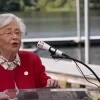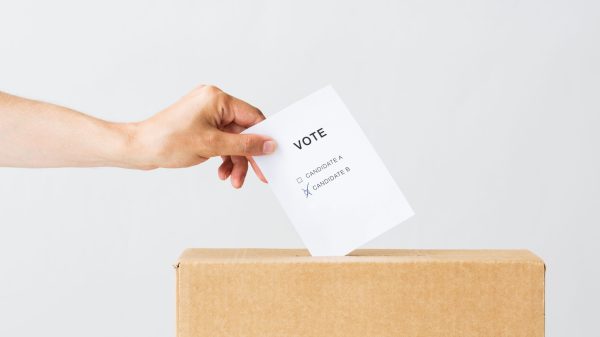By Bill Britt and Josh Moon
Alabama Political Reporter
A deposition given by the Alabama State Department of Education’s Chief Information Security Officer appears to substantially support a report provided by a staff attorney that found a willful attempt by certain ALSDE staff and a State School Board member to smear a superintendent candidate.
A full copy of the deposition of chief security officer David Pope, taken in May, was obtained by APR. It has never been released to the public and ALSDE denied numerous requests from APR for a copy of the report.
In that deposition, Pope recounts recovering the email inbox of Craig Pouncey, along with the inboxes of two other former ALSDE employees, in an effort to determine if Pouncey had committed an ethics violation while working as an assistant superintendent seven years earlier. Pope said the evidence he recovered, along with other letters and emails from those involved, were not made public prior to the superintendent vote, and some ALSDE officials continued to pursue an investigation into Pouncey as if that information didn’t exist.
“The information was at their disposal,” Pope said in the deposition. “I can’t explain why they elected not to use it.”
In addition, Pope said that State Board of Education member Mary Scott Hunter, shortly after she received an anonymous complaint about Pouncey, directed Pope to begin an investigation into Pouncey’s emails. Hunter, he said, never followed up on that request after Michael Sentance was selected as superintendent.
“… basically, the allegation itself had done what it needed to do as far as tarnishing Dr. Pouncey’s reputation and credibility as being an acceptable candidate for superintendent of education,” Pope said.
The anonymous letter that began this fiasco contained portions of old emails and accused Pouncey of misusing State resources in the completion of his dissertation. That letter was given to interim superintendent Philip Cleveland by Hunter. Cleveland passed it along to Dean for additional vetting, but she took it to the Ethics Commission.
All of that occurred just three weeks prior to the State Board selecting a new superintendent last August.
But in between the delivery of the letter to the Ethics Commission and the board vote, Pope said he delivered – on July 22 – the full contents of Pouncey’s email inbox, and also the inboxes of two other employees named in the complaint. The contents of those inboxes, which Pope said he placed on a thumb drive and personally installed and opened for Cleveland so he could view the info, along with the letters and emails from Pouncey’s co-workers vehemently disputing the allegations, should have been enough to squash the outdated allegations.
But Pope, in his deposition, said Dean, Hunter and Cleveland not only sat on the evidence, they continued efforts to smear Pouncey.
“They had the opportunity to review the information and chose not to do so,” Pope says in the deposition.
A day after Pope presented Cleveland with the thumb drive, internal ALSDE emails show Dean discussing with another ALSDE attorney, James Ward, contacting Samford University, where Pouncey completed his doctoral work, to investigate the allegations. Ward later attempted to complete such an investigation, but Samford officials would play no part in it.
Pope also inadvertently points out that Dean violated the legal advice she provided Cleveland during a meeting, and that Hunter likely overstepped her authority as a board member during the same meeting.
At that meeting, Dean explained to Cleveland that as the head of the ALSDE, reporting the ethics violations would be up to him. However, it was Dean who later hand-delivered the anonymous complaint after being contacted by Ethics Commission attorney Hugh Evans.
Dean has claimed multiple times during hearings before a joint legislative committee investigating the incident that she had the duty to report it after the call from Evans. Both Dean and Hunter, who is also an attorney, claimed they were unaware of the specific Ethics Commission rules barring it from investigating anonymous complaints. The allegations also fell well outside of the Commission’s statute of limitations – something Hunter claimed she was unaware of.
Also during that meeting, Hunter, who participated by phone, instructed Pope to begin an investigation into Pouncey by digging up his old emails. Pope declined to perform that task, since Hunter has no authority to ask an ALSDE employee to complete a task, but later was instructed by Cleveland to complete it.
The letter containing the allegations against Pouncey, which Pope described as something that “the Unabomber might put together,” were received by every member of the state board. Only Hunter choose to pursue the allegations.
After requesting the investigation by Pope, and after Pope’s recovery of Pouncey’s emails, Hunter never followed up on it. She later told lawmakers at a gathering in Point Clear that Pouncey had “ethics problems” and that he was “out of the running.”
Asked during his deposition for his opinion as to why Hunter, Dean, Ward and Cleveland never followed up and asked him to complete a thorough investigation of the allegations against Pouncey, Pope said he thought it was because their objective had been achieved.





















































